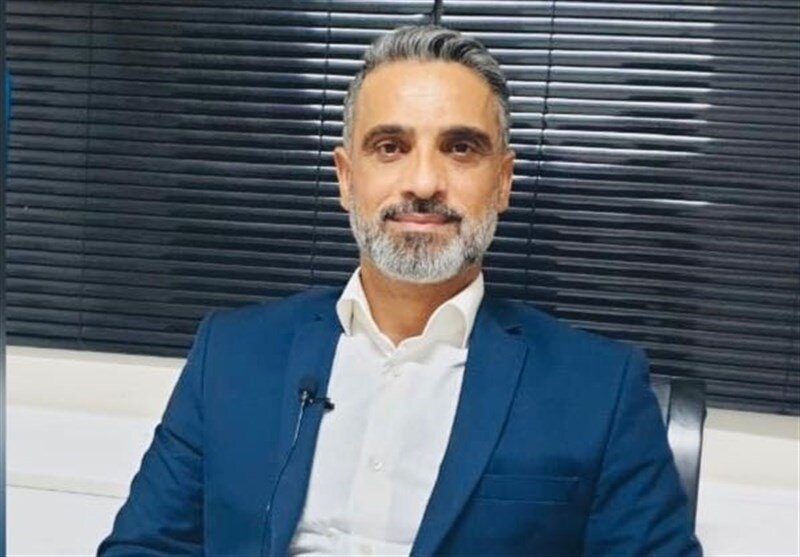Vast majority of Lebanese elites have contributed to the current crisis: academic

TEHRAN - A professor at the Lebanese International University blames the Lebanese authorities for the political and economic crisis in the country.
“The vast majority of the Lebanese political, economic and financial leaders are the ones who have contributed to this situation, and were responsible for the catastrophe that Lebanon is best by,” Tariq Aboud tells the Tehran Times.
“These politico-economic elites themselves prevent any solutions, and they want to protect the banks from paying the cost of losses and collapse,” Aboud adds.
Lebanese truck and bus drivers and others blocked main roads in the capital and other areas on Thursday in protest to the failure of politicians to address an economic crisis that has sent the currency into tailspin and driven prices sky-high.
Lebanon's pound has collapsed since 2019 when the economy crumpled under a mountain of debt. Yet a cabinet formed in September with a promise to start fixing the economy has not met for three months as rivals argue about the conduct of a probe into the devastating 2020 Beirut port blast.
Following is the text of the interview with professor Aboud about the roots of such an economic collapse that has led to a political crisis:
Q: How do you see the future of Lebanon in light of the current economic crisis? Is it possible to adapt to such a situation?
A: The future of Lebanon is bleak in light of the economic crisis and the ongoing collapse. It is not possible to adapt to a collapse of this size and pace, with no serious and real solutions on the table.
Q: What is the role of the Lebanese leaders in the deepening of the ongoing crisis that also suffers from corruption?
A: The vast majority of the Lebanese political, economic and financial leaders are the ones who have contributed to this situation, and were responsible for the catastrophe that Lebanon is best by.
These politico-economic elites themselves prevent any solutions, and they want to protect the banks from paying the cost of losses and collapse.
Add to it the insistence of some to protect accused officials and suspects who have exploited their positions to accumulate wealth at the expense of the Lebanese people’s bankruptcy and the theft of depositors’ money, especially the middle and poor classes.
Q: How do you evaluate the role of foreigners in fueling the fire of corruption and riding waves to fish in troubled waters?
A: The West had a role in this economic collapse since the beginning of the aid conferences that started in Paris one to Paris four or the CEDRE conference; the West is the one who has protected and is still sponsoring those who plundered the public money and people’s deposits.
These leaders put their smuggled money in Europe and the United States, in suspicious transfers, while the source of the transferred money was illegal; these assets belong to the Lebanese people, but the Western hypocrisy is obvious.
Add to that the spacious insistence on protecting suspects, who have lawsuits in some European countries.
But frankly, it was not the West who imposed on governments, successive parliaments, and state institutions to refrain from building electricity plants, railways, or subways and efficient public transportation, but greed and the culture of plundering public money, and the sharing of national incomes and international loans led to this bankruptcy. The (Western countries) just invested in ongoing corruption.
Q: Do you think that the current government in Lebanon is capable of handling the crisis and leading the country to a safe and stable state?
A: There is a difference between the government and the authority, the political, financial, and supervisory authorities, and even most of the judiciary are not qualified to save the country, because this group has ruled for three decades, and it is the one that caused this economic havoc. It is illogical to count on the one who caused the ruin to be the reformer.
Q: What will be the impact of the possible Iranian-Saudi reconciliation on the Lebanese political scene?
A: The external influence is usually clear on the Lebanese political reality, and this has happened since the establishment of the Lebanese entity at various historical periods.
The foreign interventions and successive mandates have always been working to postpone the dispute between the Lebanese by force, but so long as when the mandate period ended, and international interests conflict escalated, it was reflected in an internal scene.
Therefore, the solution is in a final, realistic and real agreement between the Lebanese, which constitutes a common denominator that reassures the concerns of the different Lebanese sects who are historically afraid of each other. So that the Lebanese can live for a longer period and see less wars, crises, etc.
